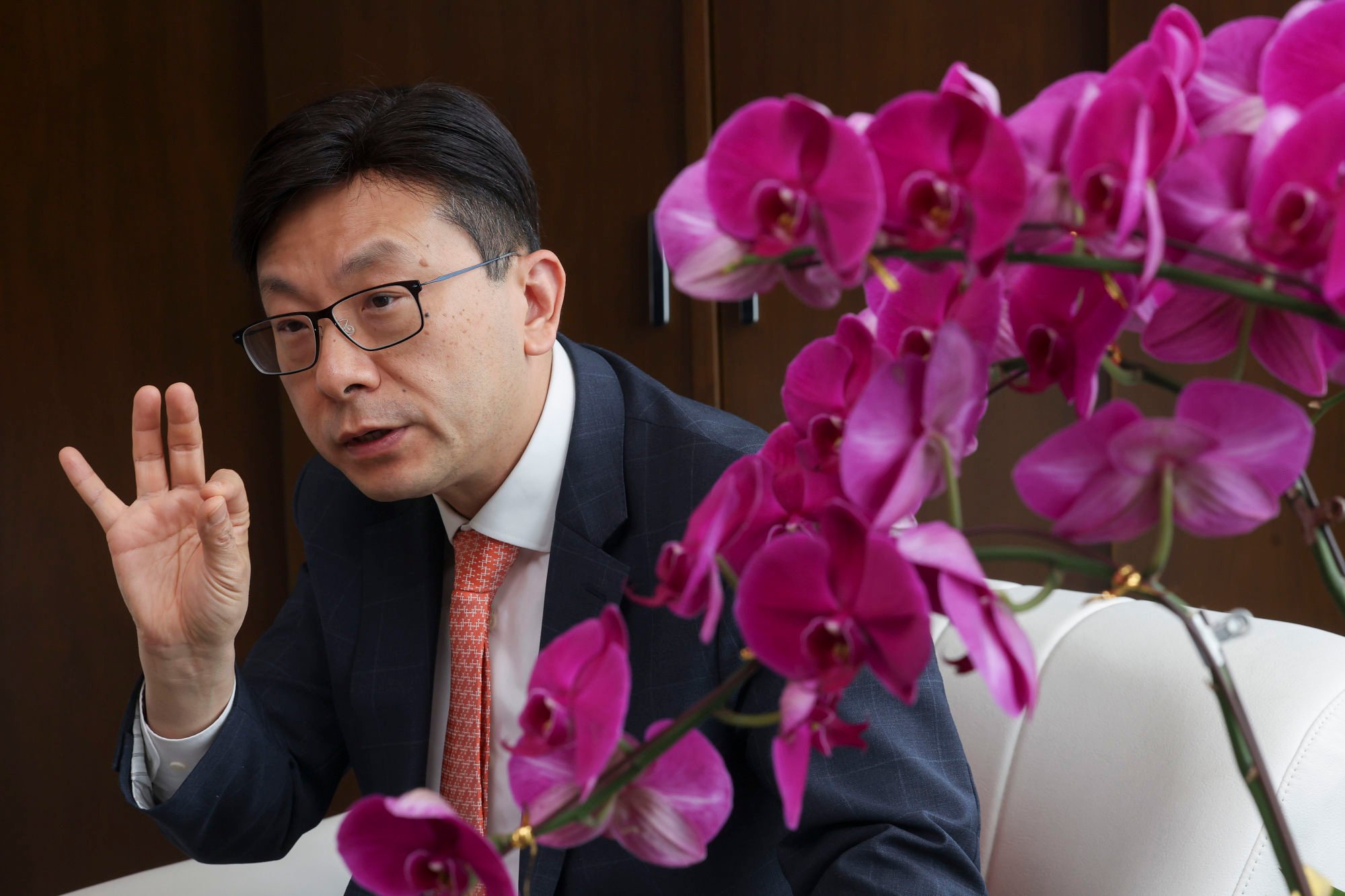Hong Kong is eyeing Southeast Asia and Europe to diversify its pool of imported talent currently dominated by mainland Chinese, the city’s labour minister has said as the government seeks to ramp up global sourcing of professionals.
The latest official statistics show that non-mainlanders currently account for about 25 per cent, or 40,000 of admissions, across all talent schemes.
Mainlanders, by contrast, accounted for more than 90 per cent of admissions under the Top Talent Pass Scheme, which was rolled out in December 2022 to lure high earners to the city.
In a wide-ranging interview with the Post, Secretary for Labour and Welfare Chris Sun Yuk-han said authorities were stepping up efforts in the coming year to attract overseas talent, with a focus on finance, trade and commerce, as well as tech professionals.
“We have rolled out multiple talent schemes in a bid to not only attract talent from the mainland but also from Southeast Asia and Europe,” Sun said.
“For example, talent from Malaysia can speak both English and Mandarin, and many speak Cantonese as well, so they will not only help us [domestically], but also help forge connections with the Southeast Asian market.”

Assessing the government’s talent drive over the past two years, Sun said results had been “encouraging”. He noted the high quality and large quantity of professionals who had been recruited.
Sun explained the top talent scheme was dominated by mainlanders due to their strong awareness of the city’s latest policies, with local news easily going viral over the border. This did not always happen with Southeast Asian and Western countries.
“What we need to do is strengthen such an awareness among them and provide as much assistance as possible,” he said. “Now that Hong Kong Talent Engage has been established, it’s time for us to go out there and promote the schemes.”
Established in October 2023, the Hong Kong Talent Engage office was tasked with formulating strategies to attract talent, as well as provide support services for those wanting to work in Hong Kong.
Sun said the office would strengthen its measures to help professionals and their families settle in the city. It would also continue to organise online job fairs and develop an extensive partner network, including education consultants, to offer advice to potential overseas talent.
Approved applicants under Top Talent Pass Scheme by location
But the city also faces geopolitical challenges that could affect its outreach efforts. The United States earlier designated China, including Macau and Hong Kong, as a foreign adversary, along with Iran, Russia and North Korea.
Sun dismissed concerns about the potential impact such antagonistic moves by the US could have on the talent drive.
“I do not think it’s necessary to worry about geopolitics, because people come to Hong Kong for opportunities,” he said. “And we do have many opportunities, as we have strong support from the motherland while being closely connected to the world.”
Apart from continuing efforts to attract international talent, Sun said authorities would also assess the retention rate of the top talent pass-holders, as the first batch would need to renew their two-year visas at the end of this year.
“This is a process of natural selection. If a worker cannot adapt to the environment or feels Hong Kong’s development is not as anticipated, he will leave,” he said. “We do expect some to leave, but it’s certain that some will stay. We want to know how many will stay and what they intend to do in Hong Kong – that’s what we will assess in the next step.”
Attracting global talent has been a key focus of the current administration, with the Top Talent Pass Scheme rolled out in late 2022 to attract high earners with an annual income of at least HK$2.5 million (US$320,000) and graduates from the world’s top 100 universities who have worked for three of the past five years.
Successful applicants are offered a two-year visa, which can only be extended if the holders are employed or have set up a business in the city.
Employed talent under Top Talent Pass Scheme by industry
Sun said more than half of the top talent pass-holders had landed a job in the city, including 30 per cent in financial services, about 17 per cent in tech and another 17 per cent in commerce and trade.
Although most successful applicants were from the mainland, about 70 per cent of younger professionals who had graduated in the past five years and had less than three years of experience held overseas degrees, mostly from the US.
The median monthly pay of this group was HK$50,000, with a quarter earning HK$100,000 and 10 per cent earning HK$200,000 per month.
They were expected to contribute an extra HK$34 billion to the city’s economy in a single year, equivalent to 1.2 per cent of the gross domestic product.
Sun added the spouses of the newly arrived professionals were also highly educated, earning a median monthly salary of HK$30,000, although not all were employed in the local job market.
The median monthly wage of Hongkongers is HK$20,000.

